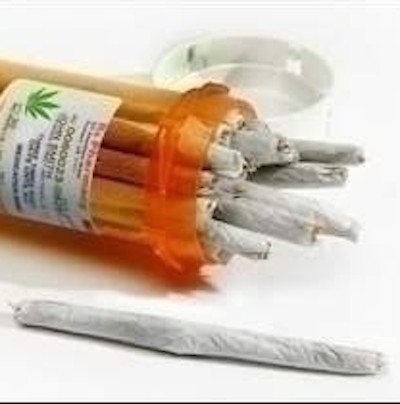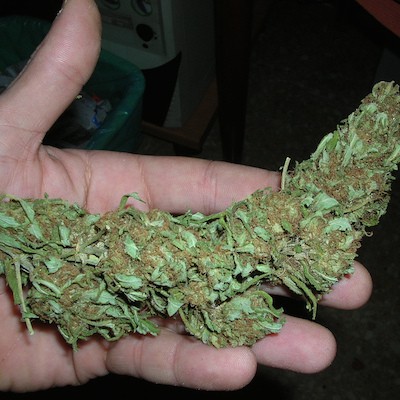Washington’s 7 Marijuana Legalization Mistakes Oregon Can Avoid
Wednesday, January 28, 2015

Many of Washington’s mistakes inform Oregon’s regulatory process, still in its early stages, of what not to do, according to a series of industry insiders and stakeholders. The same week Colorado’s Governor expressed his regret in legalizing the drug, research firm ArcView Group revealed the U.S. legal cannabis market grew from $1.5 billion in 2013 to $2.7 billion in 2014.
Slides Below: 7 Things Oregon Can Learn from Legal Marijuana in Washington
The issues Oregon must prepare to handle include access to production and retail permits, taxation, consulting medicinal industry experts, how to keep cannabis off the black market, keeping a registry of permit-holders, and taking county and city laws into account.
“We’re treating it like plutonium,” said Alex Cooley, a grower and owner of Solstice Grown in Seattle, who argues the severity of regulation in Washington ultimately hurt the industry. "It's a plant, it's not going to kill you."
Supply and demand
An imbalance of supply and demand caused a slew of startup problems for Washington producers and retailers, Cooley said. Oregon can avoid these issues by simplifying and coordinating its permit process, Oregon lobbyist Geoff Sugerman said. Additionally, he said the three separate taxes imposed in Washington drove prices too high, and sent consumers to the black market and elsewhere.
“What we need to make sure of is that our taxing structure is low enough that it doesn’t increase prices so dramatically it drives users back to the black market,” Sugerman said.
Because of those taxes, the going rate for a gram of marijuana at Cannabis City, Seattle’s first recreational pot retailer, is $25.
“Drug dealers sell it for $8 or $9 a gram,” said Cannabis City in-store manager Amber McGowan. “The focus of legalization was to have people avoid the black market. Now we’ve allowed the black market to thrive.”
For this same reason, William Simpson, founder of the Northwest Producers Processors and Retailers group, advocates putting a proposed tax onto the end of the transaction. As it stands, Oregon growers will be taxed $35 per ounce for flowers, $10 per ounce on leaves, and $5 per premature plant.
Because Washington legislators and regulators were afraid of letting too much product onto the market, prices were at a premium when pot retail shops first opened their doors, while a handful of licensed growers scrambled to keep up with demand. Within three days, most of Washington’s marijuana retailers were out of stock. But, by summer, Cooley said the market was flooded with outdoor grown marijuana, and those retailers were paying a fifth as much as they were in July.
Saturated market
“There’s a glut of product in Washington,” said Cooley.
Oregon could spare the market turmoil, Cooley argues, by proportionately phasing in retail and pot farming permits, and not putting a cap on the number of licenses issued at all. According to McGowan, there are too many growers and not enough retailers to sell to.
“There are too many farmers going out of business because there are not enough people to sell their product,” McGowan said. “To make it super successful, don’t over saturate the market with growers.”
But prior, some businesses that applied for a license had to wait up to a year before knowing if they would get the permit.
The same factors driving Washington users to the black market could send them to Oregon, Simpson said. “Washington is worried about what will happen when there’s an inexpensive market in Oregon, that people will come over the bridge and purchase it here,” he said.
Keep medicinal experts in place
By being one of the first states to legalize medicinal marijuana in 1998, Oregon has the advantage of a fully functional supply chain of medicinal growers and retailers, who Cooley said should be consulted.
“Bring in the people who have already done it well, and hold up the people who are doing it right as an example,” he said.
Washington has been criticized for not incorporating the medicinal marijuana industry or its experts, in its transition to legalization. Medicinal cannabis was not legal or regulated in the state until after 2012.
“Give all of the people who are legally in the medical marijuana system an easy path, keep people in place,” Sugerman said.
House Bill 2676, introduced for the Feb. session by Rep. Peter Buckley, would give the Oregon Liquor Control Commission (OLCC) dual licensing powers for growers and processors, as well as dispensaries by transferring medicinal marijuana dispensary regulation from the Oregon Health Authority (OHA) to the commission.
Sense of place
Taking into account the laws specific to counties and municipalities will be essential to Oregon’s success in implementation, Simpson said.
“The single largest mistake we could make is not talking to the attorney generals, cities and counties about moratoriums and what would be allowed,” Simpson said. In Washington, some license holders were unable to open due to county moratoriums and bans.
Treat it like agriculture
Cooley argues that because marijuana is a plant, it should be regulated like an agricultural crop. He urges Oregon regulators to allow crops on farm land, as some Washington cities are now banning grow operations within city limits.
“It’s a plant, it should grow in the sun, not in a warehouse in Seattle,” he said.
February legislature session
As Oregon’s policy makers gear up for another session of the legislature Feb. 2. , over a dozen House and Senate bills address the regulation of recreational marijuana, including distance from schools, signage, edible products and medicinal initiatives.
“I realized with Colorado and Washington State, we would be able to learn from the experiences they had,” said Sen. Floyd Prozanski, whose Senate Bill 464 would require that producers of cannabinoid extracts (used for “edibles”) be certified by the OHA.
“I’m not convinced at this point that we should have all products available at the retail side like Colorado did,” said Prozanski, who argues Oregon needs to ensure its medicinal program does not collapse into its recreational program.
Another bill, put forth by Senator Chris Edwards, would establish a semi-autonomous medicinal cannabis research board.
OLCC staffing up
The OLCC is currently in the process of putting together a Rules Advisory Committee to assist commissioners with writing new rules for recreational pot, spokeswoman Karynn Fisher said. Tom Burns, who headed the dispensary program, is at the helm.
“We’ve been watching Washington and Colorado closely,” Fisher said. “We’re hoping to take advantage of not being first.”
The state is coming off of a week-long online survey on the subject, which drew more than 16,000 participants. The OLCC kicked off a tour of 10 listening sessions around the state Jan. 22.
By July, personal possession and homegrown marijuana will be legal, but retail and production will not follow suit until January 2016. Fisher said she expects the writing of new regulations will go from March until October of this year, giving businesses two months to understand the process in the lead-up to January’s launch.
EDITOR'S NOTE: an earlier version of this article said Oregon was the first state to legalize medical marijuana. Oregon was actually the third state to do so.
Related Slideshow: 7 Things Oregon Can Learn from Legal Marijuana in Washington
In the wake of what many business owners, lobbyists and advocates call a rocky implementation of recreational marijuana in Washington, Oregon regulators have the opportunity to learn from their neighbor to the north.


















 Delivered Free Every
Delivered Free Every
Follow us on Pinterest Google + Facebook Twitter See It Read It